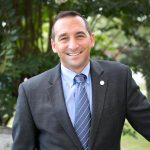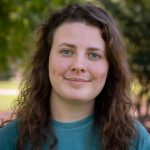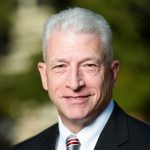UA Celebrates National Recognition of Fulbright Award Winners and Semi-Finalists
- May 15th, 2020
- in Fulbright
The University of Alabama (UA) has recently learned the results of the annual student Fulbright competition. Three UA students have received Fulbright Student Research Awards for the 2020–2021 academic year and fourteen have won Fulbright English Teaching Assistantship Awards.
Fulbright is the most prestigious U.S. international exchange program, offering opportunities for students, scholars and professionals. The Fulbright Award of the U.S. Department of State offers one-year grants for independent study and research and for English teaching assistantships overseas. The highly competitive program selects approximately 1,500 award recipients from more than 11,000 applicants each year. The University of Alabama has received national recognition as a Top Producing Institution for Fulbright U.S. Students for four of the last five years. “We applaud every Fulbright 2020–2021 student applicant for their interest in furthering the Fulbright mission of mutual understanding between the people of the U.S. and the people of other countries,” said Dr. Teresa Wise, associate provost of international education and global outreach. “As the world unites in solving the unprecedented challenges of COVID-19, that mission is more important than ever. We congratulate our awardees and know that they will represent UA and the U.S. with distinction in the coming year.”
Fulbright Student Research Award recipients:
Julia Coursey,of Washington, D.C., has received a Fulbright Award to Hungary to conduct research at the University of Debrecen and in Budapest for her novel, The Bathers. She holds the MFA in creative writing from UA and a BA in liberal arts from St. John’s College (Santa Fe).
Joshua Kirks, of Kennesaw, Georgia, received a Fulbright Award to research “Hollow Cathode Development and Testing” at Dresden University of Technology in Germany. He is a UA graduate student in aerospace engineering and mechanics who also holds a BS in aerospace engineering from UA and memberships in Sigma Gamma Tau honor society (aerospace engineering) and Delta Phi Alpha honor society (German).
Ashley Tickle Odebiyi,of Tuscaloosa, has received a Fulbright Award to Italy to research ”Gender, Authority, and Liminal Space: Roman Bizzoche, 1400–1500,” at LUMSA University and Sapienza University in Rome. She is a UA doctoral student in history with language study in Latin and Italian who also holds a BA from James Madison University and an MA in religious studies from the University of Iowa.
Fulbright English Teaching Assistantship Award recipients:
Christine Jane Allen of Auburn, a leader in Model United Nations, an experienced debate tutor, Chief Justice of the Academic Honor Council and a fellow of the Blackburn Institute, who is a 2019 summa cum laude Honors College graduate in political science and environmental policy with advanced competency in the Spanish language, to teach in Spain.
Austin Blair of Germantown, Tennessee, a Parker Adams Fellow and mentor of freshmen students, a Delta Phi Alpha German Honor Society member with study experience at The University of Mannheim and fluency in German, and a 2020 graduate in German with a minor in interdisciplinary linguistics, was chosen to teach in Germany.
Mason Olivia Blanke of Tuscaloosa, a UA Presidential Scholar and 2020 Honors College graduate in electrical engineering and physics with a certificate in teaching English as a foreign language, to teach in Poland.
Camille Constance Nealey Carr of Wake Forest, North Carolina, a fellow of the Blackburn Institute, a Blount Interdisciplinary Scholar in the liberal arts and 2019 summa cum laude Honors College graduate in Spanish and political science with fluency in the Spanish language, to teach in Colombia.
Caroline Smith Dean of Dothan, a Spanish Outreach mentor for the Tuscaloosa County Schools, an intern for Congresswoman Martha Roby, a fellow of the Blackburn Institute, president of the UA English Majors and Minors Association, executive committee Chair for the SGA Student Judiciary, staff journalist for The Crimson White, and a 2020 summa cum laude Honors College graduate in English and Spanish, with a minor in creative writing, advanced Spanish language ability, and overseas experience in Spain and South Korea, to teach in Spain.
Isabella Rose DeSheplo of Washington, D.C., a fellow of the Blackburn Institute, a member of the Carl A. Elliott Community Service Honor Society and a 2020 UA Honors College graduate with a BA and MA in political science and a minor in public policy studies, to teach in Bulgaria.
Lota Erinne of Peachtree City, Georgia, a poet, winner of the 2019 Greer Marechal Memorial Prize in Fiction, managing editor of The Marr’s Field Journal literary magazine and 2020 Honors College graduate in English and finance with fluency in Spanish, to teach in Spain.
Logan Fenhouse of Lombard, Illinois, a Blount Interdisciplinary Scholar in the liberal arts, former leader of Beyond Bama Alternative Breaks, Spanish interpreter at Maude Whatley Health Center, mentor with extensive experience tutoring all ages, and 2020 summa cum laude Honors College graduate with degrees in Spanish and Interdisciplinary Studies, and fluency in Spanish, to teach in Spain.
Amelia Wyant Gaither of Hickory, North Carolina, writing center tutor, UA English Language Institute instructor, a founder of UA Chinese Conversation Hour and a Global Café ESL conversation partner, with a BA in English from Davidson College and an MA in applied linguistics and TESOL from UA, to teach in Taiwan.
Robert “Chad” Hankins, of Mobile, a Blount Interdisciplinary Scholar in the liberal arts, member of The Mallet Assembly and The White Rose Society, certified teacher of English as a Foreign Language and a 2018 graduate in political science with a minor in German, advanced German language competency, and the Global Studies Certificate, to teach in Germany.
Asia Monet Hayes, of St. Augustine, Florida, a teacher with Breakthrough Collaborative of Central Texas and the Dream Alabama Mentor Program of the UA Honors College, a fellow of the Blackburn Institute, a member of the Carl A. Elliott Community Service Honor Society, recipient of the Harold Bishop Award, and a 2018 UA Honors College graduate in Interdisciplinary Studies, summa cum laude with fluency in Spanish assessed at Superior/Distinguished and experience in Argentina and Cuba, to teach in Spain.
Katherine Lightfoot of Northport, a discussion facilitator with the UA English Language Institute, an active leader in Model United Nations and German Club, a Delta Phi Alpha German Honor Society member and a 2019 Honors College graduate in international studies and foreign languages who is enrolled in graduate studies in German at UA, to teach in Germany.
Rebecca Paholski of Plano, Texas, an experienced teacher, tutor and mentor through Cottondale Elementary (Tuscaloosa, AL), Newman Elementary School (Frisco, TX), Breakthrough Atlanta, Tuscaloosa’s One Place, Alabama Institute for the Deaf and Blind, READ Alabama, Horseshoe Farms Remote Tutoring Program, and Los Estudiantes de Alabama sin Fronteras, who has an MS in Human Environmental Sciences, a BA in Elementary Education, summa cum laude, and advanced competency in Spanish, to teach in Spain.
Ian Samlowski of Madison, a teaching assistant in the department of Modern Languages and Classics, a translator for the Birmingham Holocaust Education Center and a fluent German speaker, who holds BA and MA degrees in German from UA with membership in Delta Phi Alpha German Honor Society, to teach in Germany.
The University is also pleased to report that 6 students were awarded alternate status in this year’s national Fulbright competition. They will be invited to serve should more openings become available to the national Fulbright Program. They are Emily Adams (Bulgaria), Olivia Brick (Laos), Ekaterina (Katya) Khvatkova (Russia), Meredith Moore (Bulgaria), Austin Olivier (Germany), and Trey Sullivan (Bulgaria).
“Our campus is proud of these 23 exceptional student leaders in international engagement,” said Dr. Beverly Hawk, director of global and community engagement, “and we appreciate the dedicated faculty, staff and administrators who advised our students in application for these awards.”
A team of Fulbright advisors from UA’s Capstone International Center, Modern Languages and Classics Department and the Center for Community-Based Partnerships helps students polish applications for success in the Fulbright competition each year. Students interested in applying for next year’s Fulbright program can learn more at http://international.ua.edu and https://us.fulbrightonline.org, or by sending an email to UA’s Fulbright advisers, Megan Wagner megan.wagner@ua.edu, Dr. Matthew Feminella mfeminella@ua.edu, or Dr. Beverly Hawk beverly.hawk@ua.edu.






